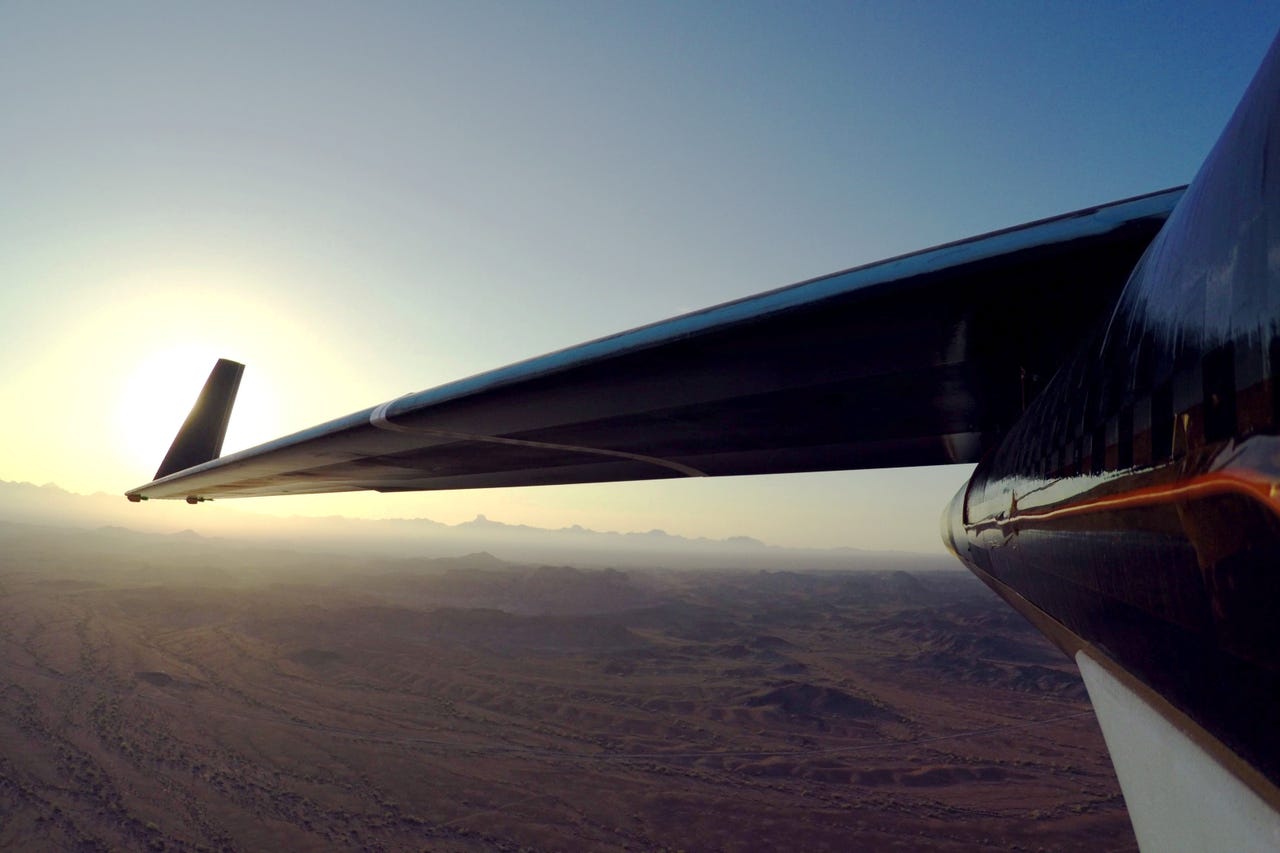Facebook's internet drone Aquila takes flight


Mark Zuckerberg is one step closer to bringing internet connectivity to every corner of the planet. Facebook's internet drone, called Aquila, recently made its first full-scale test flight, the company announced Thursday.
On June 28, the unmanned aircraft flew for as long as 90 minutes at low altitudes across the skies of Yuma, Arizona.
"The design ended up being even more efficient than we'd guessed, and it used even less power to stay up than we thought," Zuckerberg told The Verge. "We did pick up a lot of telemetry and data, and there were some things that we want to tweak. We'll do another test flight, and at some point soon we'll test the solar-powered plane with the communications payload in it."
Eventually, Facebook plans to take the drone to altitudes above 60,000 feet and fly it for up to three months at time -- far longer than the current record for solar-powered unmanned flight, which stands at two weeks.
Aquila will use e-band technology to beam connectivity from the drone to receivers on the ground. Facebook says it has already lab-tested a laser that can deliver data at 10s of Gbps to a target the size of a dime from more than 10 miles away.
During its June 28 test flight, cruising at an altitude of 2,150 feet, Aquila consumed 2,000W of power, the company says. At 60,000 feet, it should be able to loiter using about 5,000W of power -- about as much as three hair dryers.
Aquila is just one component of Facebook's plan to support worldwide connectivity. Last month, the company unveiled a wireless access platform, called OpenCellular, which can be deployed in remote locations. And earlier this year, Facebook rolled out a system called Terragraph, which aims to push broadband through dense cities and urban areas where networks are frequently jammed with traffic. They also debuted a system called Aries, which aims to improve mobile signal strength in rural communities using the existing wireless spectrum. Facebook has also partnered with Microsoft to build a subsea cable across the Atlantic.
Some of the company's projects have met resistance. Earlier this year, its free-but-restricted internet service, Free Basics, was banned by India's national telecoms regulator as a violation of net neutrality.
Meanwhile, Facebook isn't the only company testing innovative new ways to expand connectivity. Google also has a solar-powered drone called SkyBender, which has made test flights over New Mexico. Google's also working on Project Loon internet balloons.